It was early 2016. My best friend and I sat in the local 24/7 taqueria, each of us exhausted from the long night before. I was awake on the phone with him while he was hightailing it to my crib in Orange County in the dead of night after a bloody Vegas bender. Look: it was college. After silent moments face down in al pastor, he broke the ice with a topic we’ve collectively spoken hundreds of hours about: the motion pictures. He dished out a survey of the last 10 years of overwhelmingly white cinema; since we were kids, nothing had changed. The cold Brits and for-hire American males dominated the auteur catalog. He asked me “Where do we go from here?”
I glared at him in disbelief—I honestly miss the days I was this hopeful. I told him A24 had this Black-owned, Black-operated Miami love story coming out called MOONLIGHT. The Nat Turner revolt movie premiering at Sundance was boldly titled THE BIRTH OF A NATION. Justin Lin was handed a Star Trek movie, and TANGERINE was proof that the future of film production and distribution could be in the hands of voices who can finally afford a film production! Barry Jenkins is an American master, but, sure, not all these panned out. Five years later and THE BIRTH OF A NATION is but a minuscule stain on the culture, Lin’s Star Trek tanked the franchise, and “films shot on iPhone” has become a critical pejorative, let alone the new digital wave. My friend and I are both aspiring filmmakers—myself half-Mexican and half-Puerto Rican, himself a bountiful mix, from Filipino to Hawaiian. This was the decade we’d have a chance to become kings, or at least witness the come-up of filmmakers who thought and felt like us. Midway through the 2010s, the decade was ripe for a revolution; fuck, I mean, it was looking to burst from the seams!
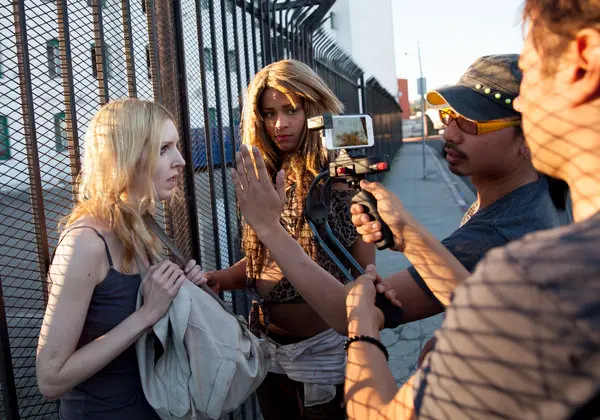
Never stop making filmmaking accessible
We were fresh off the inception of #OscarsSoWhite, but flash-forward to 2020, where an array of worthy voices were once again excluded from the parameters of what voters identify as “Oscar-caliber.” Yes, even after the new wave of 842 Academy members, a near third of which are minorities. Not to pry, but it’s no coincidence that the filmmakers of color gaining in prominence float towards center-right ideologies. The doors will open to the few, but those few must be willing to kiss the ring and obey its traditions. Most haunting is that there’s not much we can do about that—it’s an issue of the subconscious, of altering instinctual behaviors and prejudices.
While BLACK PANTHER never sinks to the vile lows of FRUITVALE STATION, a film that bends over backwards to prove that Oscar Grant wasn’t a thug rather than forwardly indicting the cowardice and malice of Oakland PD, its intended effects are almost worse. Marvel’s BLACK PANTHER is a devoutly anti-revolutionary screed that spends its runtime demonizing and, ultimately in its climax, assassinating Malcolm X. It is a work seemingly written in tandem with the FBI, a masterclass in narc cinema that labors in instilling a sense of political complacency amongst its young viewers. Don’t be a Killmonger, be a T’Challa. This was a disturbing trend in serial narratives that stretched into television, with Daenerys Targaryen’s violent efforts to free entire slave cities in Game of Thrones translated in the finale as the first signs of “Mad Queen Syndrome.” The rightful freedom of the wrongfully, forcibly imprisoned must never be implemented through force. Violence begets violence, so best to let the suffering remain in chains until the next batch hopefully has a better shot at achieving happiness. In the 2010s, bad mainstream films were no longer just bad, they became reprehensible slime.
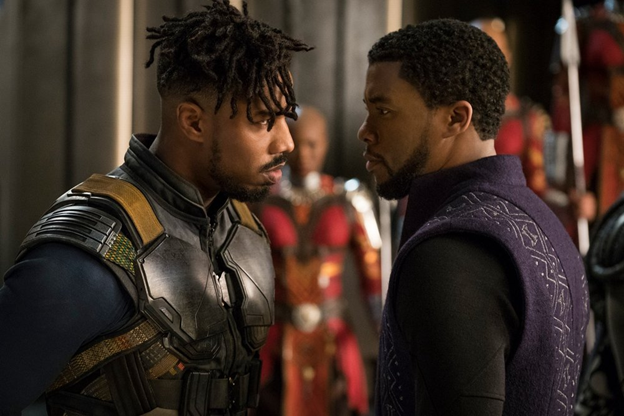
Keeping Wakanda Great
Yeah yeah, I’ll be the one to point out that I started the decade as a 13-year-old child, so things were likely always this bad! I became an adult in the 2010s, so I only just recently started noticing the evils of the world! It certainly doesn’t put me at ease that we’ve been content with these conditions for so long. I am constantly told by Hollywood’s own elite that we are in the throes of a revolution of representation, but I cannot parse out what or where this “revolution” may be. “We live in such an exciting time for cinema!” To which I really just gotta take one gander at the vibe of the room and ask “Really?” Is the “revolution” in CRAZY RICH ASIANS’ poorly timed but widely rewarded ode to the wealth of slave labor industries amidst a country’s rising shift to socialism? Maybe it’s in the strategic erasure of Freddie Mercury’s identity in BOHEMIAN RHAPSODY, ensuring that even North Dakota gets to only focus on the music, man! Ah no, wait, it’s gotta be in Jared Leto’s historic win for bravely playing a trans prostitute (gasp!) in DALLAS BUYERS CLUB, of course.
Perhaps the “revolution” is in cinema’s discovery of the cure for racism. The success of GREEN BOOK, both financially and culturally, is a newly attributed black mark to be worn for decades to come. While Film Twitter will work its hardest to lead you to believe the film achieved instant obsolescence, Farrelly’s galaxy-brain remake of DUMB AND DUMBER has struck a major chord with audiences who ache for the return of swing music and innocent ‘50s values (read: a shocking amount of people). A man who begins the film throwing out two glasses because Black men drank from them is redeemed 100 minutes later as the proud proprietor of a shiny, new Black friend. And lest we forget JOJO RABBIT, wherein Nazism is just a bad case of chickenpox to schlep off in due time. That’s where the real work is: humanizing the genocidal. They may want you and your bloodline vanquished, but they’re just as deserving of love as you are!
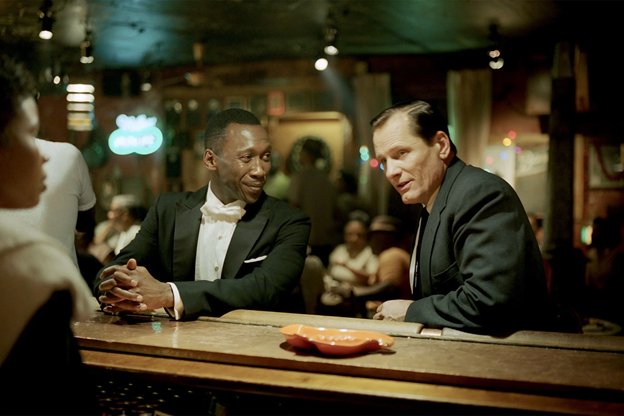
We allowed this. We really, truly allowed this.
My sister was pushed down a flight of stairs by a MAGA creep for “looking Latina” in a primarily Caucasian high school. Her good friend turned on her because our family was “cutting ahead in line” or some other variation of dumbass nationalist rhetoric. We’re not in a culture war over treacly political correctness (grow up and respect people’s boundaries and backgrounds, that’s all “PC Culture” is, you fucking *monsters*!), we are in a state of emergency under the constant oppression of white supremacist ideology. If you’re fighting violent hatred with “love,” then do the rest of us a favor and get the fuck out of the way. The presiding proposal for the solution is to wait for the old guard to die out, either via patience or minimal acceleration, but the crisis has spread to the younguns, as it always has for generations long before us. If this was merely a generational divide, The People would’ve figured their course decades ago.
We have a right to be angry and stay angry—it’s why Jordan Peele’s GET OUT is the defining cultural object of the 2010s, perhaps the decade’s greatest artistic output, bar none, for the sole fact that it was the only film to harbor pure and righteous anger. Chris doesn’t free himself and negotiate a peaceful mediation with the Armitage Klan—he murders every last one of them for trying to brutally strip him of his conscience, his body, and his spirit. It’s ugly, but it’s cathartic genre mastery. There are no “good whites” in GET OUT, only slave masters. It is a film rooted in the frustrations and fears of millions that finally provided an outlet for our daily griefs. GET OUT was an activator. I walked out shaking—we can make movies like this now. We can start thinking like this. Our crushing misgivings are valid miseries to be exorcised and, best of all, the act of exorcism is not an overreaction. In American cinema, Peele is the only active director fuming.
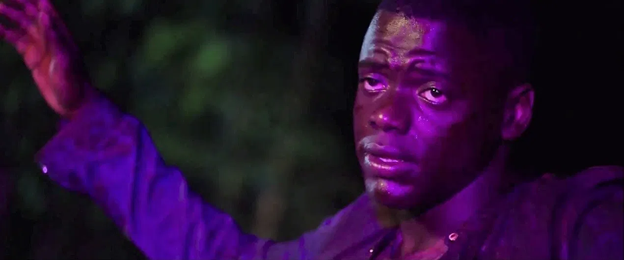
The Physical, Emotional Tolls of Rage
My best friend and I reconvened in late 2019 dazed, for lack of a better word. Like nearly four years prior, we were back to the same exact crisis. “Where do we go from here?” I wanted to propose another list of hopeful outcomes, one radiant with the glow of constructive optimism, but I just couldn’t muster it. “Things were not supposed to go this way, man.” He responded: “It’s not what we expected.” Going into the 2020s with the current cinematic climate is a bleak proposal. The independent window, already shrinking in 2010, is maybe at its tightest now since the Golden Age. Media conglomerates are not only thriving, but late capitalism has rendered the act of brand consumption a precious activity of emotional feeling. Popping on Netflix is the new tending to the fireplace, the programs about as equally disposable as firewood. The 2010s were a period of dashed hopes. We were promised a seat in the throne room, but we enter the 2020s told that the broom closet is in fact where the true royals don their crowns.
Thank God WAVES flopped, a rancid excuse for a modern jukebox musical that treated Black trauma like it was texture. HBO’s Euphoria, television mulch also churned out by A24 and also show-ran by an affluent mid-30s white male who witnessed LGBT+, femme, and racial traumas in his peripheries and decided to capitalize on them with 2013 music video esthétique, came in clutch in the final seconds of the 2010s to become the worst TV show of the decade. QUEEN AND SLIM, a film “for us and by us,” betrayed its own base, ending with a horrific fray of murder-by-cop violence. Even with Black creators at the helm, the morals of the piece aligned with a code-era studio ordering appropriate punishments for the criminals of their story. We got Guillermo, Alejandro, and Alfonso some Oscars, but Mexicans weren’t even offered busboy gigs, let alone a seat at the table. The holy grail for many was COCO, a Disney-Pixar foray into an El Torito, serving up stale, palate-friendly cuisine drenched with the melted cheese chaser of recycled RATATOUILLE, WALL-E, and MONSTERS, INC. plots. It’s not a Mexican story, it’s a themed Main Street parade. Is it curious that Lee Unkrich received sole director’s credit, meanwhile Adrian Molina was left with a separate “co-director” credit? Absolutely, but maybe that was the result of some animation guild technicalities that SPIDER-MAN: INTO THE SPIDER-VERSE managed to side-step.
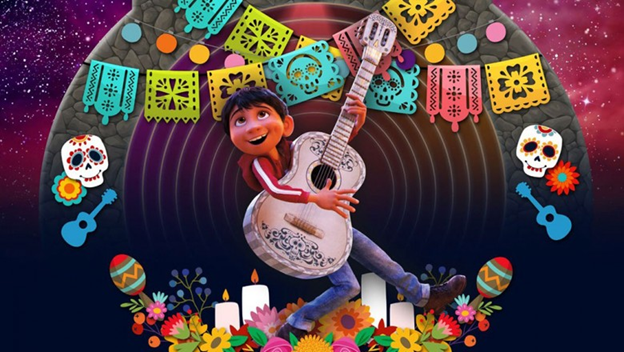
A feature-length episode of Dora the Explorer, you love to see it, folks
The DNA of cinema as we recognize it is rife with the genetics of white supremacy. Engaging with the medium is inherently corrupt. Most film history courses provide an apolitical assessment of Griffith’s THE BIRTH OF A NATION, focusing on the technical marvels with a heavy “you must approach a film of its time with the politics of its time,” while conveniently omitting the exacts of the era’s politics. What they often leave out is how local NAACP chapters protested and rallied so dutifully that the film was ran out of cinemas in numerous towns across America. Fighting back is not new, yet the narrative of popular cinema’s revolution is constantly reset so as to make the community’s collective efforts appear nascent. The story as told by Hollywood is that we’re in the baby steps—better days are coming, for both representation and the fostering of diverse voices. “Baby steps,” Jesus, I keep hearing this fucking term—so patronizing and dismissive, yet uttered with a certainty only possible from bad-faith, dummy mode optimism. Baby steps are a long road to nowhere.
I yearn for the rise of a new royalty, a future of queens and kings to tell their own stories without licking the fuzz of a master’s doormat. A middlebrow revolution is no revolution. The oppressor will have you believe that the former is in fact the latter, so as to deter any attempts at a true revolt in the medium. It starts with the restructuring of capital, it starts with the ousting of fascist gatekeepers, it starts with how we view the limits of cinema, and it starts with you and me not having the patience or tolerance for any of this fuckshit any longer. How do you capsize a multi-billion dollar industry? It sure ain’t baby steps.




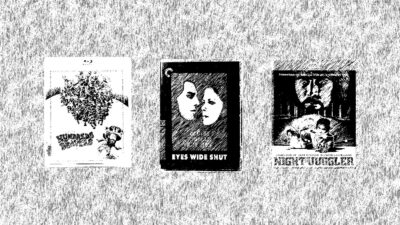










[…] is the general going rate around these parts, GET OUT was a cultural juggernaut that firmly established Jordan Peele as one of modern […]